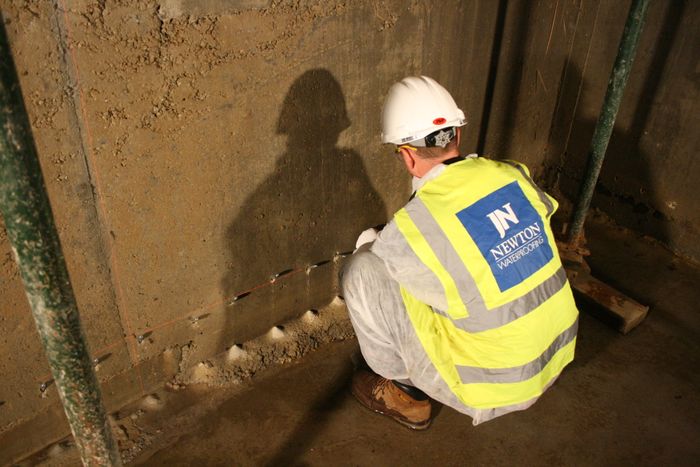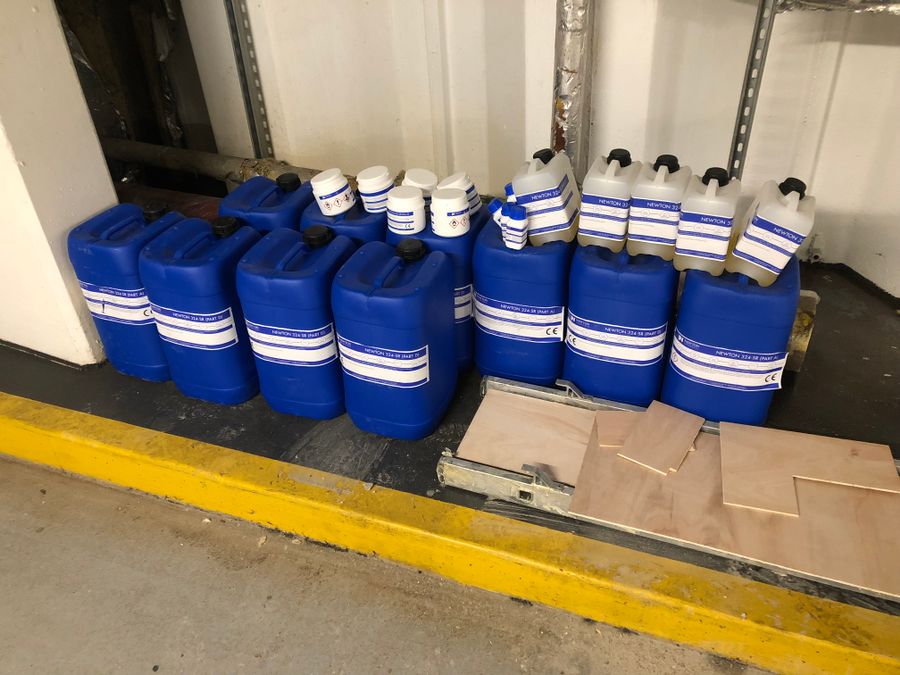01732 360 095
Tunnel waterproofing is extremely challenging. Whether carrying out remedial work on an existing tunnel or waterproofing a brand-new tunnel against water penetration, it’s essential that the correct procedures are followed, and the most appropriate products are used.
At Newton Waterproofing, we have over a century’s experience in providing effective waterproofing solutions. During this time, we have assisted on many tunnel waterproofing projects. From road and rail transport tunnels such as the London Underground and HS2, to civil infrastructure projects for the National Grid and Thames Tideway, our expertise and experience have enabled us to provide practical solutions for a range of tunnel waterproofing requirements.
Why do Tunnels Leak?
When a tunnel leaks, over time the water ingress can cause critical damage to the tunnel’s structural integrity. This can potentially lead to substantial repair work being required, disruption to essential activities, and even risk to life.
Thorough planning and design are the best ways to safeguard against tunnel leaks. For existing tunnels, however, remedial work is often more complicated and difficult to carry out. When planning to construct a tunnel, here are some points to consider regarding why tunnels often leak:
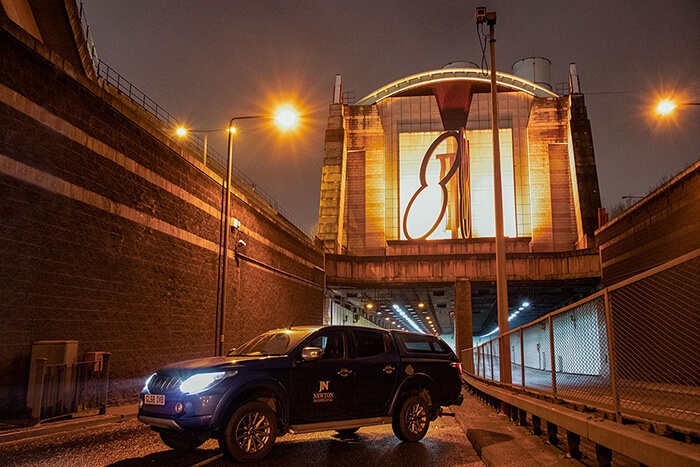 Incorrect design calculations or unforeseen loads
Incorrect design calculations or unforeseen loads- Underestimations of tensile loads at a particular point
- Incorrect steel placement
- Insufficient concrete cover
- Shrinkage of the concrete
- Excess heat generation
- Corrosion of reinforcement
- General care and attention
This list is by no means exhaustive, but it gives a good idea about the main reasons why tunnels can be compromised by water leakage.
Tunnel waterproofing methods
Two of the primary methods of tunnel waterproofing involve injecting a polyurethane or acrylic resin into the tunnel’s substrate via injection packers. The resin then expands into the space to create a completely watertight structure. Both resins provide excellent water protection and can be used in a variety of tunnel waterproofing scenarios.
One of the benefits of using a polyurethane resin in this scenario is that it will expand and foam on contact with water in order to fill the voids, cavities or cracks in the structure. Depending on the project, this reaction makes polyurethanes a good option where there is a high volume of water entering a tunnel or below-ground structure, to create a temporary seal against the water. This can then be further reinforced with a secondary, permanent seal using an acrylic injection resin.
Whereas acrylic resins don’t foam up like polyurethanes, they are low-viscosity, hydrophilic resins that react to create an elastic, durable gel. The reaction time of the resin can be tailored by adjusting the quantities of the chemical components, and once cured they will permanently seal cracks, voids and joints in concrete structures, such as tunnels.
Either the polyurethane and acrylic injection resins can also be applied using an injection hose within the construction joint.
Benefits of Using an Injection Hose
Injection hose systems are an innovative and extremely effective method of waterproofing joints in pre-cast concrete tunnels. The injection hose is easily installed to each pre-cast concrete segment, or where new concrete is to be poured against an existing structure. If any leakage occurs after installation of the concrete, the hose can be injected with acrylic or polyurethane resin to fill any cracks and imperfections.
Injection hose waterproofing for tunnels offers users a range of benefits including:
- Compatible with polyurethane and acrylic resins
- The hose is not displaced or damaged by the concrete compaction process
- The hose is unaffected by weather exposure and site works
- Quicker to install than conventional waterbars
- Seals the whole of the joint and so prevents water entering the joint and reaching the reinforcement steel
- Resistance to sewage, chlorine, and sulphides
- Injection resins will not ‘free-swell’ into voids and be washed away, as can happen with bentonite-based waterbars
Have a read of our Injection Resin Application Methods for more detailed information about the different application processes for injection resins.
Newton Waterproofing Tunnel Waterproofing Case Studies
At Newton Waterproofing, we have worked on numerous tunnel waterproofing projects. These include road tunnels for automotive vehicles, underground railway tunnels, and tunnels for electric cabling, water pipes, and gas pipes.
Have a read through our project case study at the Limehouse Link Tunnel in London for an example of our tunnel waterproofing capabilities.
Injection resins are an outstanding way to waterproof tunnels. They can also be used in other structures and scenarios including:
- Basements
- Bridges
- Underground car parks
- Construction sites
- Water treatment facilities
- Public and private buildings
Our help and advice article on Injection Technology provides more information on the different capabilities of injection resins for waterproofing.
If you’d like to find out more about our tunnel waterproofing capacity or any of our products or services, contact Newton Waterproofing today. You can call us on 01732 360 095, fill in the form below or email us directly on tech@newtonwaterproofing.co.uk
Customer Success Stories
Our latest customer reviews from Feefo - the award winning review platform

Speak to our friendly, expert team
Our staff are able to provide guidance for projects of all sizes, whether you require some general advice about damp or waterproofing, or support with technical drawings and specifications.

